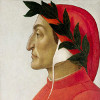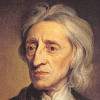“ If, therefore, men in this life only have hope; if in this life only they can enjoy, it is not strange nor unreasonable, that they should seek their happiness by avoiding all things that disease them here, and by pursuing all that delight them; wherein it will be no wonder to find variety and difference. ”
John Locke, An Essay Concerning Human Understanding (1689). copy citation
| Author | John Locke |
|---|---|
| Source | An Essay Concerning Human Understanding |
| Topic | happiness difference |
| Date | 1689 |
| Language | English |
| Reference | |
| Note | |
| Weblink | http://www.gutenberg.org/files/10615/10615-h/10615-h.htm |
Context
“so the greatest happiness consists in the having those things which produce the greatest pleasure, and in the absence of those which cause any disturbance, any pain. Now these, to different men, are very different things. If, therefore, men in this life only have hope; if in this life only they can enjoy, it is not strange nor unreasonable, that they should seek their happiness by avoiding all things that disease them here, and by pursuing all that delight them; wherein it will be no wonder to find variety and difference. For if there be no prospect beyond the grave, the inference is certainly right—‘Let us eat and drink,’ let us enjoy what we delight in, ‘for to-morrow we shall die.’ This, I think, may serve to show us the reason, why, though all men’s desires tend to happiness, yet they are not moved by the same object.”
source


